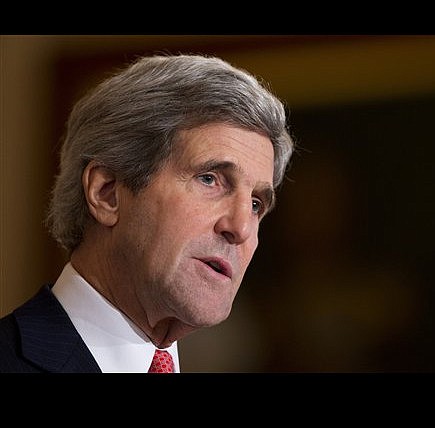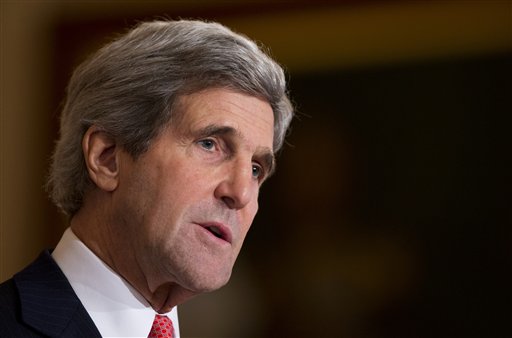U.S. eyes push against anti-gay laws worldwide
Wednesday, February 26, 2014
WASHINGTON - Troubled by an anti-gay movement in Uganda and across much of the world, the U.S. is launching a new effort to combat what Secretary of State John Kerry described Wednesday as a threat to human rights.
Comparing a harsh Uganda law to oppressive government crackdowns on German Jews in the 1930s and black South Africans during apartheid, Kerry said he was going to direct American ambassadors to look at "how we deal with this human rights challenge on a global basis." He said 80 nations worldwide have anti-gay laws on some levels, and he called the one in Uganda -- which punishes gay sex with up to life in prison -- "atrocious" and "flat out morally wrong."
"You could change the focus of this legislation to black or Jewish, and you could be in 1930s Germany, or you could be in 1950s or '60s apartheid South Africa," Kerry told reporters during a 55-minute question-and-answer session at the State Department. "It was wrong there, egregiously, in both places, and it is wrong here."
He said the issue would be a major focus of discussion when U.S. ambassadors from across the world return to Washington for meetings in the weeks ahead.
During the discussion, Kerry did not mention a proposed Arizona law that, if approved by Republican Gov. Jan Brewer, would allow businesses whose owners cite sincerely held religious beliefs to deny service to gays. Brewer has until Saturday to sign or veto it. She said in a tweet this week that she "will do the right thing for the state of Arizona."
Earlier Wednesday, during a separate interview with MSNBC, Kerry said he was "counting on the governor" to veto the Arizona bill and predicted the Supreme Court will strike it down if it becomes law.
"This has not been an easy path in the United States, but what's important is we're on the path," Kerry said on "Andrea Mitchell Reports."
"We're staying steady," he said. "We've made enormous progress in the United States, and we will stand up for people's rights anywhere in the world because that's who we are in the United States of America."
Peter Sprigg, senior fellow at the conservative Family Research Council, which supports the Arizona legislation, called Kerry "ill-informed" about the bill. He said the legislation merely seeks to clarify aspects of Arizona's Religious Freedom Restoration Act.
"Religious liberty is a fundamental right under the Constitution," Sprigg said in statement. "And state action which would substantially burden the free exercise of religion should have to be justified by a compelling government interest."

